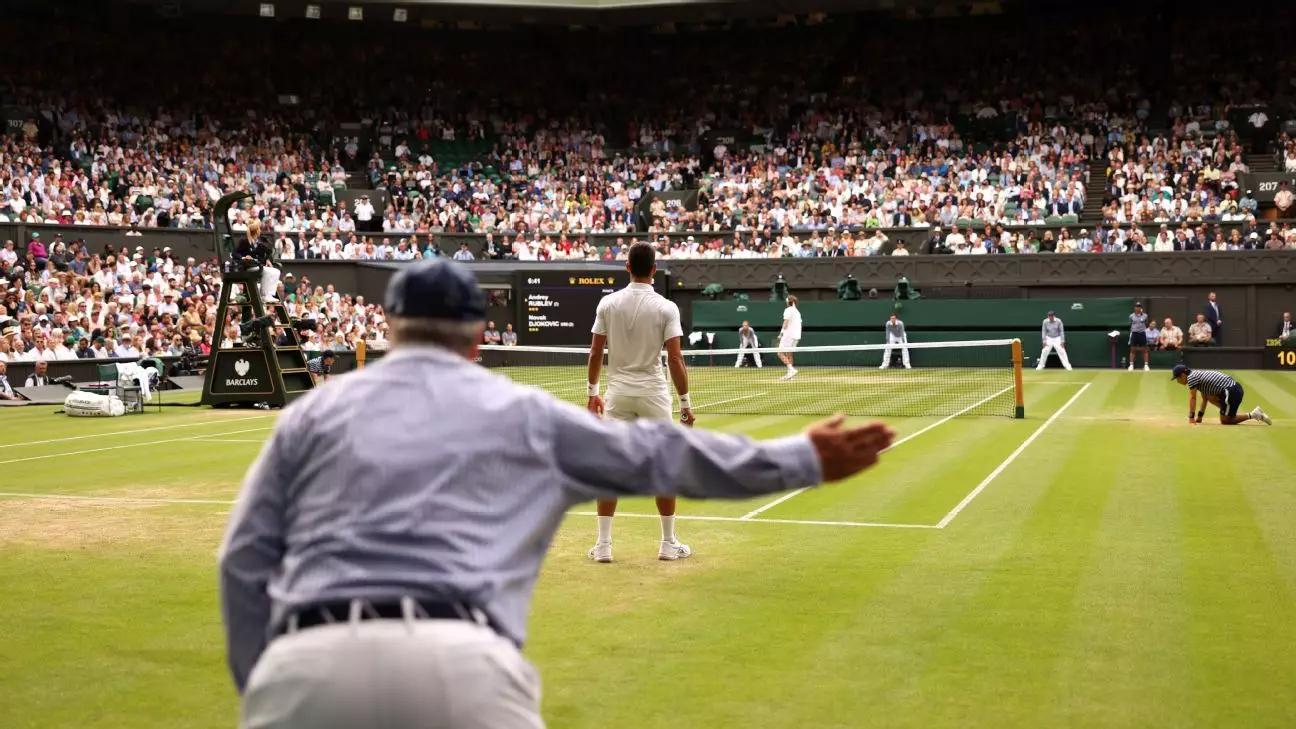In a pivotal move set to redefine the landscape of tennis officiating, the All England Club announced that traditional line judges will be eliminated from the Wimbledon Championships next year. Instead, a cutting-edge system powered by artificial intelligence will step in to handle line-calling responsibilities across all 18 courts. This decision marks a monumental departure from 147 years of human officiating, showcasing an era where technology plays an integral role in sports.
This technological leap is not entirely unprecedented. Various tennis tournaments have already begun adopting automated line-calling systems. Most notably, the US Open implemented the Hawk-Eye Live system back in 2020, which allowed for real-time line calls without the intervention of human officials. With the increasing success and acceptance of such technologies across the ATP Tour, the stage is set for a broader implementation by 2025.
By adopting AI for line calling, Wimbledon aims to enhance accuracy and efficiency in officiating. Automating this responsibility transitions the venue into a new era where disputes over line calls can become a relic of the past, thereby potentially improving the player experience. The All England Club has expressed confidence in the reliability of this system after conducting extensive testing during the Championships in previous years.
Despite the groundbreaking change, the All England Club remains committed to honoring its rich history. Sally Bolton, CEO, emphasized the importance of maintaining a balance between tradition and progress. While the introduction of AI technology may shift the dynamics of officiating, it does not diminish the historical significance of line umpires, who have long been a staple of the tournament. The organization acknowledged their invaluable contribution and expressed gratitude for their years of service—a noteworthy gesture in the face of modernization.
Bolton articulated the evolving landscape of professional tennis: “For the players, it will offer them the same conditions they have played under at a number of other events on Tour.” As the sport adapts to the demands of contemporary athletes and audiences, the integration of technology might just be the key to a more seamless competitive environment.
In addition to the technological advancements, the Wimbledon Championships will also implement changes to match scheduling. Next year’s men’s and women’s singles finals are set to commence at a later start time, with both matches projected to begin at 4 p.m. local time. Notably, the women’s singles final will follow the men’s doubles, and the men’s singles will conclude the day after the women’s doubles. These scheduling updates reflect a growing trend in sports to better accommodate viewers and stakeholders.
Overall, the upcoming adjustments at Wimbledon are reflective of a broader innovation trend sweeping through the sports world. By embracing technology, the All England Club illustrates a willingness to adapt while navigating the fine line between heritage and advancement. As 2024 approaches, all eyes will be on Wimbledon to see how these changes unfold in the storied tournament’s history.


Leave a Reply